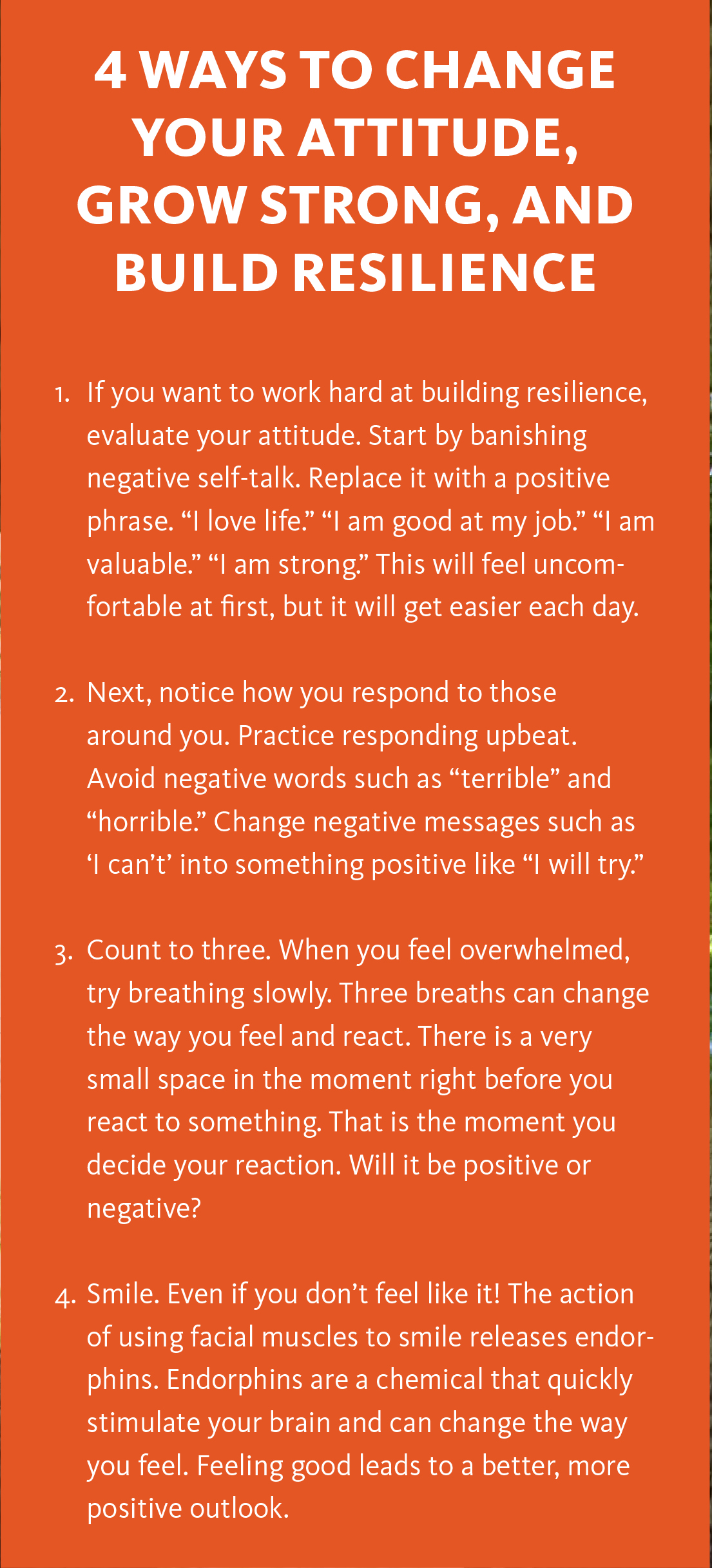by LOLA RAIN, FOUNDER, WISELY WELL-BEING ACADEMY
By the time you turn 100 years old, you will have survived many difficulties. Economic woes, emotional battles, health issues, loss of loved ones, wars, pandemics, and more. Personal tragedies, feelings of defeat, loneliness, and isolation are life experiences that most humans share.
 Many researchers point to positive attitude as the leading factor to higher levels of life satisfaction and increased longevity. One study found that a positive self-perception of aging increased survival by 7.5 years (Levy, 2002). In fact, if you talk to a resident with a positive attitude, no matter their physical condition, they typically don’t focus on aches and pains. They focus on family, friends, and faith.
Many researchers point to positive attitude as the leading factor to higher levels of life satisfaction and increased longevity. One study found that a positive self-perception of aging increased survival by 7.5 years (Levy, 2002). In fact, if you talk to a resident with a positive attitude, no matter their physical condition, they typically don’t focus on aches and pains. They focus on family, friends, and faith.
In The Blue Zones, author Dan Buettner found commonalities shared by the healthiest, oldest people on the planet: plant-based diet, non-forced exercise, community, and purpose. If you assess all of your residents, those who score a higher emotional rating will more likely have stronger connections to community and greater since of purpose.
CSUS Gerontology student Emerald Francisco and I interviewed 23 centenarians at Eskaton in 2018. We asked on a scale of 1 to 10, how do you feel emotionally? And on the same scale, how do you feel physically? The median score was nine for both — even though 91 percent of those interviewed had a mobility challenge. People who feel better emotionally, tend to feel better physically. And vice versa.
If this is true, how do we focus on our own physical and emotional wellbeing? Where do we find the strength and how do we build the resilience to move forward through adversity and crisis? Our residents.
If you’ve dedicated your career to serving older adults, you know where to find the answers to some of life’s toughest questions. The wisdom within our communities is abundant. Your residents can tell you stories of resilience, patience, healing, and so much more.
Collect stories from those who have seen tough times. The person who lost everything during the depression and learned to be frugal to survive. The woman who outlived her daughter by 50 years and found joy again. The man who bombed Germany, or Vietnam, and struggled to find a way to forgive himself. These are stories you hear every day. The people who tell them are truly resilient.
Resilience is developed over time; it doesn’t happen overnight. No one is born with a positive attitude, it is acquired. Happiness is a skill, not a personality trait.
As many centenarians will tell us: Don’t sweat the small stuff, life is too short for regrets, and try to be patient. These are all good reasons why a positive attitude can lead to a more satisfied and resilient life.




